
Xanthidae is a family of crabs known as gorilla crabs, mud crabs, pebble crabs or rubble crabs. Xanthid crabs are often brightly coloured and are highly poisonous, containing toxins which are not destroyed by cooking and for which no antidote is known. The toxins are similar to the tetrodotoxin and saxitoxin produced by puffer fish, and may be produced by bacteria in the genus Vibrio living in symbiosis with the crabs, mostly V. alginolyticus and V. parahaemolyticus.

Pinnotheres is a genus of crabs, including the pea crab. Many species formerly in Pinnotheres have been placed in new genera, such as Zaops ostreus, the oyster crab and Nepinnotheres novaezelandiae, the New Zealand pea crab. The species currently recognised in the genus Pinnotheres are:
Johannes Govertus de Man, was a Dutch biologist. He was assistant curator at the Rijksmuseum van Natuurlijke Historie in Leiden, where he specialised in free-living nematodes and decapod crustaceans, although he also wrote papers on flatworms, sipunculids and, in his dissertation only, vertebrates. His change away from vertebrates disappointed the director of the museum, and de Man left his job there after eleven years. For the rest of his life, de Man worked at his parents' house in Middelburg and later at a house near the shore at Yerseke in the Oosterschelde estuary, relying on his family's private income.

Macrophthalmus is a genus of crabs which are widespread across the Indo-Pacific. It contains the following species : Species in this genus are often referred to as sentinel crabs.

Ozius is a genus of crabs in the family Menippidae, containing the following species:

Pilumnoidea is a superfamily of crabs, whose members were previously included in the Xanthoidea. The three families are unified by the free articulation of all the segments of the male crab's abdomen and by the form of the gonopods. The earliest fossils assigned to this group are of Eocene age.

Etisus is a genus of crabs, containing the following extant species:
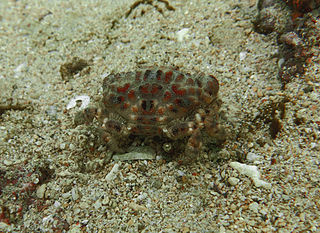
Paractaea is a genus of crabs in the family Xanthidae, containing the following species:

Chlorodiella is a genus of crabs in the family Xanthidae, containing the following species:

Pilodius is a genus of crabs in the family Xanthidae, containing the following species:
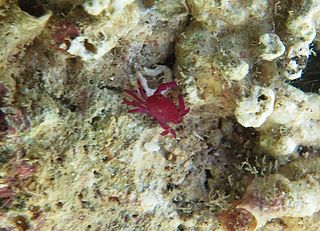
Liomera is a genus of crabs in the family Xanthidae. It contains the following species:

Neoliomera is a genus of crabs in the family Xanthidae, containing the following species:
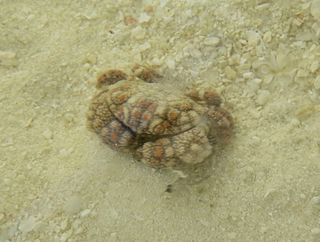
Pseudoliomera is a genus of crabs in the family Xanthidae, containing the following species:

Leptodius is a genus of crabs in the family Xanthidae, containing the following species:

Paraxanthias is a genus of crabs in the family Xanthidae, containing one exclusively fossil species and the following extant species:

Xanthias is a genus of crabs in the family Xanthidae, containing two exclusively fossil species and the following extant species:
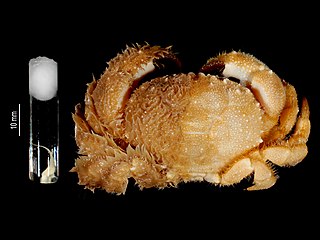
Banareia is a genus of crabs in the family Xanthidae, containing the following species:
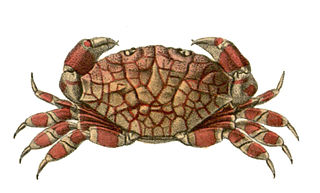
Lophozozymus is a genus of crabs in the family Xanthidae, containing the following species:

Pilumnus is a genus of crabs, containing the following species:

The Panopeidae are a family containing 26 genera of morphologically similar crabs, often known as "mud crabs". Their centers of diversity are the Atlantic Ocean and eastern Pacific Ocean.


















